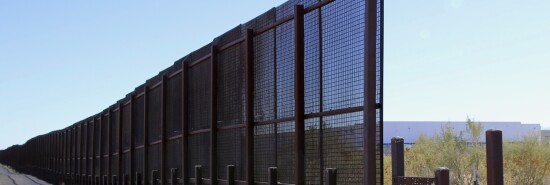
5,000 characters? Elon Musk needs to read his G.K. Chesterton before changing Twitter too quickly
Timothy P. Carney
Our government, media, and tech elite are insular and cursed with ideological blinders. The concentration of economic and political power in a smaller and richer liberal elite fosters stagnation and groupthink.
That’s why conservatives were thrilled when eccentric billionaire Elon Musk, who has spent a couple of years objecting to liberal woke orthodoxy and censoriousness, bought Twitter. There are lots of reasons to believe that Musk may not only make Twitter less politically intolerant but also a better-run business. Fresh eyes, independence, and a new perspective often are exactly what a business needs.
But “fresh eyes” and a “new perspective” are just as frequently dangerous as they are invigorating, and Musk has already made multiple errors that are typical of newcomers who possess insufficient respect for the way things are already done.
Now, he’s considering a disastrous change:
https://twitter.com/elonmusk/status/1601862965384269825
Questioning Musk’s ambitious changes to Twitter doesn’t require you to believe in Silicon Valley’s wisdom. It just requires you to read your G.K. Chesterton.
Chesterton warned his readers about change by positing a “fence or gate erected across a road.” Of this fence or gate, Chesterton wrote: “The more modern type of reformer goes gaily up to it and says, ‘I don’t see the use of this; let us clear it away.’ To which the more intelligent type of reformer will do well to answer: ‘If you don’t see the use of it, I certainly won’t let you clear it away. Go away and think. Then, when you can come back and tell me that you do see the use of it, I may allow you to destroy it.’”
In other words, if you don’t understand why something is there in the first place, you are the last person who should be trusted to dispose of it.
Musk, on more than one occasion, has been that “modern reformer” who didn’t understand the rationale of the way things were, and so he haphazardly tried to scrap the old ways.
Recall Musk’s attempt to democratize blue checks. Verification comes with some perks, and so, how is it fair that only famous or notable people get verified? Reasoning thus, Musk allowed anyone to buy a blue check, which in turn made the blue check totally worthless and opened the door to blatant fraud.
Now, he’s talking about scrapping the character count. There’s a logic there: Folks can still tweet with brevity, but now they will have the option to tweet at length! And if 280-character messages are good, why wouldn’t 5,000-character messages be better?
But again, if you think the fence is pointless, that means you need to figure out why it’s there in the first place. The original reason for Twitter’s character count (which was 140 at the start) happens to no longer be operative: It dates back to when users read tweets as text messages on their phones.
So, the next question is why a character count stuck around when Twitter’s use changed. Why didn’t Twitter just scrap the limit or go to 5,000 characters 10 years ago? The related question is this: Did the constraint of character counts add to the value of Twitter, both for readers and tweeters? Constraints are anathema in the modern worldview. Isn’t modern capitalistic America, especially Silicon Valley, about moving fast and breaking things?
Sure, but conservatism is about moving slow and protecting things. That is, right now, our culture errs in the direction of too few constraints.
Every editor and every good writer knows that constraints of time or length improve a writer’s work. Every genre has an appropriate form. For something that you can post in an instant, in a totally democratic forum, without any gatekeepers, the proper form is very brief.
There are probably other virtues to the character count that we don’t notice. But we will realize the reasons for the fence if it is ever taken down.
CLICK HERE TO READ MORE FROM THE WASHINGTON EXAMINER
